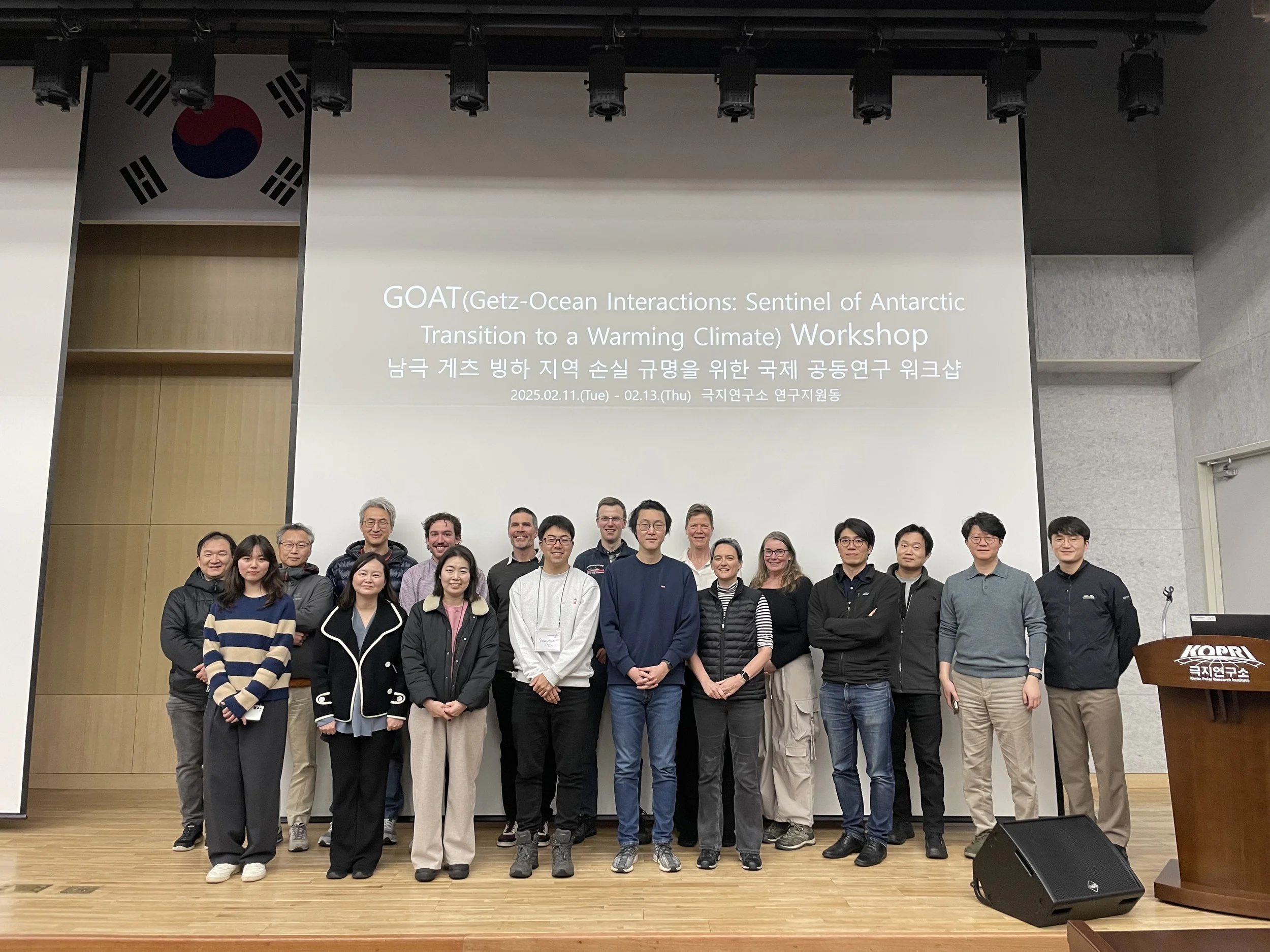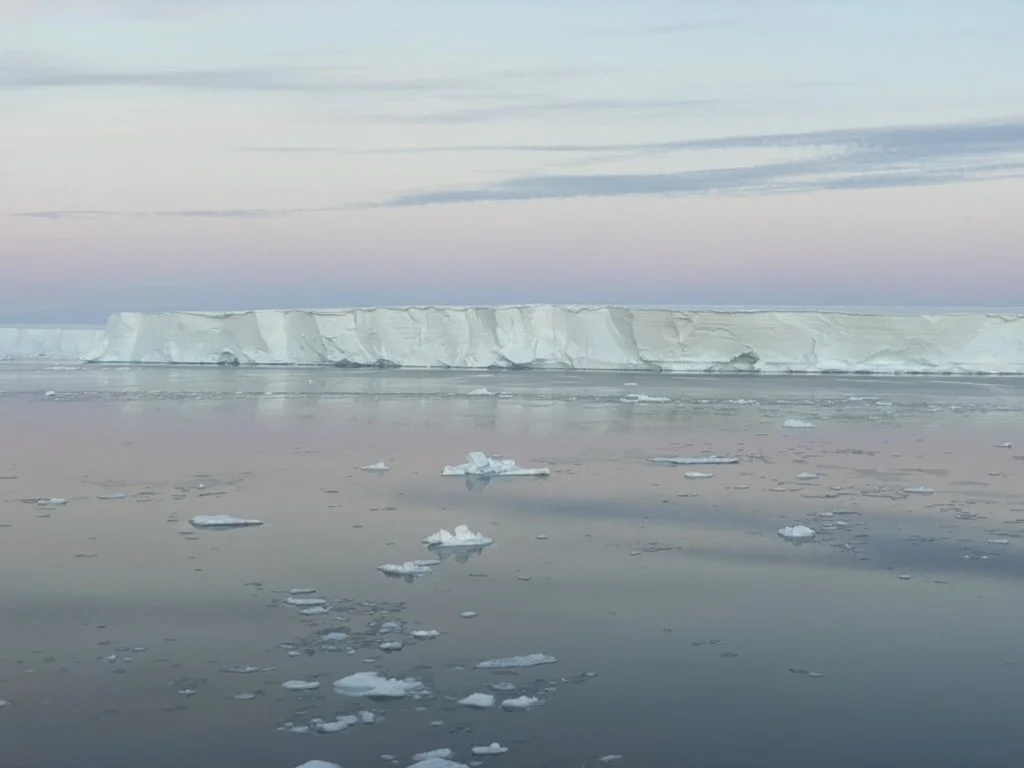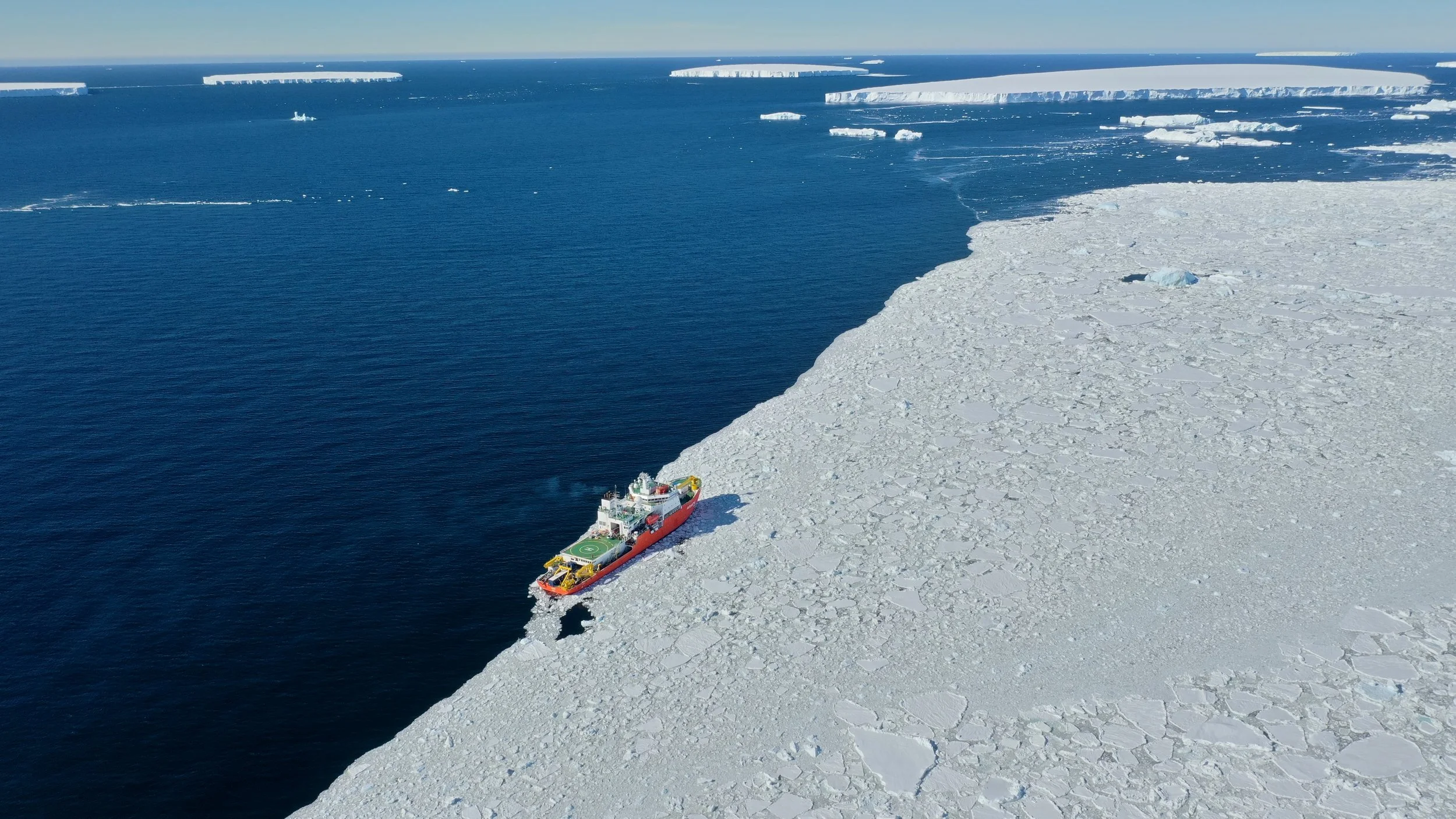GOAT Workshop brings international experts to KOPRI, Republic of Korea, to address Antarctic climate change
Last week, the GETZ Initiative (GETZ-Ocean Interactions: Sentinel of Antarctic Transition to a Warming Climate - GOAT) held its first in-person workshop at KOPRI, bringing together 34 participants from across the world, both in person and online. The three-day workshop (February 11-13, 2025) marked a milestone in establishing this collaborative research effort that is focused on understanding the rapid changes occurring in West Antarctica's Getz region. PCAPS steering group members Clare Eayrs and Daniela Liggett participated in the discussions to shape future research in the Getz region.
Participants at the GOAT workshop. Photo credit: Joa Kwon, KOPRI.
The Getz region is changing rapidly. Over the last 25 years, the ice is moving much faster - on average 24% faster, with some glaciers speeding up by nearly half their original pace. This has led to significant ice loss that has already contributed about 1 millimeter to global sea level rise. This meltwater influence on ocean circulation is unclear, but is thought to extend as far as the Ross Sea, the world’s largest marine protected area and an important marine ecosystem. The region holds particular significance in climate research, with its nine glaciers uniquely named after locations of important climate treaties and conferences - from Incheon to Glasgow. These names not only honour key moments in climate policy but also symbolise the crucial link between scientific research, policy and climate action.
Ice melt from the Getz region has already contributed about 1 mm to global sea level rise and there have been widespread increases in ice speed across the sector. Photo credit: Clare Eayrs.
Over the three days, participants engaged in a variety of sessions that combined:
Presentations on current research, including ocean-ice interactions, satellite observations, and ice shelf dynamics;
Brainstorming sessions to identify key stakeholders, including decision-makers and research partners;
Interactive breakout group discussions focusing on relevant themes, from research horizons to science impact;
Strategic planning sessions for future field activities; and
Discussions on outreach and community engagement.
As well as highlighting complementary experiences from other Antarctic regions, including the Ross Ice Shelf and Totten Glacier, the presentations also explored research horizons for the Getz region.
Korean icebreaker IBRV Araon at the edge of the sea ice melange in front of Thwaites Glacier.
Photo credit: KOPRI.
A key outcome of the workshop was the development of a framework for a comprehensive review paper during 2025, that will guide future research efforts. The document will outline current understanding of the Getz region, critical knowledge gaps, and priorities for future research.
The GOAT initiative will capitalise on upcoming expeditions through the K-NOW project, which will provide opportunities for deploying instruments in the Getz region.
Perhaps most importantly, the workshop succeeded in bringing together experts from various disciplines and career stages. The mix of senior researchers and early-career scientists, combined with representatives from policy and science research sectors, created dynamic discussions about both scientific objectives and broader societal impacts.
The GOAT initiative is now poised to move forward with the:
Exploration of funding opportunities,
Development of specific research projects in the Getz region,
Planning for field campaigns, and
Implementation of engagement activities in cities connected to the Getz glaciers.
The enthusiasm and collaborative spirit demonstrated during the workshop suggest a bright future for this initiative. As the Getz region continues to experience significant changes due to global warming, the GOAT initiative will play a crucial role in understanding and communicating these changes to both the scientific community and the broader public.
The GETZ Initiative (GOAT) is a collaborative research and outreach effort focused on understanding and addressing the changes occurring in the Getz region of West Antarctica.
The workshop was funded by the K-NOW project that investigates the contribution of West Antarctic melt to global sea level rise. K-NOW is supported by Korea Institute of Marine Science & Technology Promotion (KIMST) and funded by the Ministry of Oceans and Fisheries (RS-2023-00256677; PM23020).




